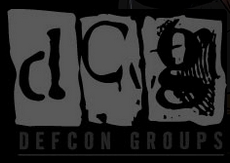EvilQR – When QRCode goes bad
Security assessment of mobile QR readers – Updated (30-Nov-2011)
Abstract:
Quick Response code, also known as QRCode has been around for several years, but in the last months there has been an incline in adoption of QRcodes as a marketing channel. A QRcode can encode a variety of information into a 2-dimentional barcode that is presented to the costumer. Customers are often referred by vendors into scanning QRCodes in order to receive coupons, discounts or other marketing media such as website, flash movie etc. The QRCode is parsed by QR-reader software on a mobile phone equipped with a camera. The true nature of QRcode content is an enigma until it is scanned; there is no possibility for the customer to authenticate the content of a QRcode without scanning it first. Because of the latter fact, an attacker with evil intent could craft a malicious QRCode (or evilQR) and lure an innocent customer to scan it. Once scanned the evilQR would be parsed by the customer mobile phone software and would initiate its’ attack. Attack vectors could vary from browser-based such as Cross-Site-Scripting (XSS) to specific buffer-overflow and command injection. The key for a successful attack lays in the default behavior of the mobile QRCode reader software. If as an example, a QRCode reader parses a link from a evilQR and preforms a URL redirection without proper confirmation of the customer – the attack would succeed. In this assessment we have compared the default behavior of several QR-readers for and noted their behavior upon the parsing of two evilQRs. Best practices for mobile users are also discussed.
The problem:
An innocent customer can be easily tricked into scanning a malicious-crafted QRCode (evilQR) by an attacker, upon scanning the customer mobile would be attacked by the encoded payload.
Motivation:
The motive for executing such attack is very clear – the mobile phone is a gold mine for an attacker, because today’s phone contains very sensitive information such that can be abused by an attacker in several ways:



